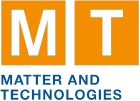Speaker
Heide Meißner
(Helmholtz-Zentrum Dresden-Rossendorf)
Description
Charge integrating detectors have a wide range of applications at X-ray free electron lasers and synchrotron light sources. The continuous increase in resolution and precision of these detectors results in an even higher demand for computing power to process the input data for time-dependent evaluation. One of these sensors which is being developed at the Paul-Scherrer-Institute, is the JUNGFRAU-sensor. This sensor outputs 1024 by 512 channels of up to 2 kHz at 16 bit while maintaining single photon sensitivity and low noise. The goal of our work is to develop a software tool which is capable of real-time processing of the sensor data, meaning dark frame calibration as well as correction, masking, conversion to photon count and energy value, photon cluster extraction and online tracking and correction of the sensor sensitivity. Our implementation builds upon the ALPAKA library which allows for easy reconfiguration and optimization for different hardware architectures including state of the art GPUs and multicore CPUs.
Authors
Mr
Florian Warg
(HZDR, TU Dresden)
Heide Meißner
(Helmholtz-Zentrum Dresden-Rossendorf)
Mr
Jonas Schenke
(HZDR, TU Dresden)
Co-author
Dr
Michael Bussmann
(Helmholtz-Zentrum Dresden - Rossendorf)

